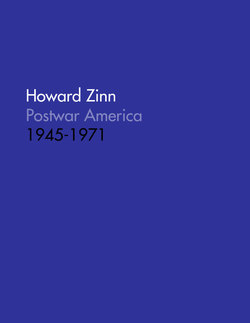Читать книгу Post War America 1945-1971 - Howard Boone's Zinn - Страница 14
На сайте Литреса книга снята с продажи.
B. Guatemala, 1954
ОглавлениеWhat Truman had said at the start of the Korean intervention about the United States upholding “the rule of law” as opposed to the “rule of force” was utterly contradicted in 1954 by the American overthrow, through force, of the legally elected reformist government of Guatemala. On June 18 an invasion force of mercenaries, trained by the United States Central Intelligence Agency at secret bases in Honduras and Nicaragua and supported by four American P-47 Thunderbolts flown by American pilots, invaded Guatemala from Honduras, and put into power Colonel Carlos Castillo Armas, who at one time had received military training at Fort Leavenworth, Kansas.
The Guatemalan intervention was a violation of the United Nations Charter, which in Article 2, Section 4, says: “All members shall refrain in their international relations from the threat or use of force against the territorial integrity or political independence of any state. …” According to the 1968 edition of the Manual of International Law, sponsored by the Carnegie Endowment for International Peace, “an indirect involvement of a government in an armed venture outside its territory constitutes a use of force and is governed by the same law as is applicable to open hostilities directed against another state.” When an attempt was made to put the Guatemalan invasion on the agenda of the UN Security Council, the United States delegate to the UN, Eisenhower appointee Henry Cabot Lodge, who was then president of the Security Council, kept it off, arguing that it was an internal affair and not within the jurisdiction of the UN.
The rationale for the Guatemalan invasion was supplied by President Eisenhower. “There was a time,” he said, “when we had a very desperate situation, or we thought it was at least, in Central America, and we had to get rid of a Communist government that had taken over.” But the government the United States got rid of was the most democratic Guatemala had ever had. Communist influence in it was small—only four of the fifty-six seats in Congress were held by Communists, and no member of the presidential cabinet was a Communist—and throughout the country no more than four thousand persons, in a population of three and a half million, were Communists. Communists did hold important posts in the land-reform and education programs. It may be, however, that what really irked the United States was not communism but the actions of the government of Jacobo Arbenz against the United Fruit Company and American oil interests. In one region of Guatemala, Arbenz had expropriated 234,000 acres of uncultivated land owned by United Fruit; he offered compensation for the unused land, but the company turned it down, terming the offer “unacceptable.” Meanwhile, Arbenz began action to expropriate 173,000 acres of the company’s land in another area.
The ten years of reformist government in Guatemala that preceded the American intervention were described as follows by Ronald Schneider in his study Communism in Guatemala, 1944–1954:
While Guatemalans in general had enjoyed more freedom during the 1944–54 period than ever before, the working class had particular reason to feel loyal to the revolutionary regime. For the first time in Guatemalan history labor enjoyed the right to organize freely, bargain collectively and strike. Never before had they felt free to speak out openly and voice their feelings without restraint, much less be confident of gaining a sympathetic hearing from the government. The lower classes enjoyed the novelty of living in a new atmosphere, officially fostered, in which they were treated with a measure of respect and dignity.
Castillo Armas arrived in late June in American Ambassador John Peurifoy’s embassy plane to take over the government; the next day Secretary of State John Foster Dulles said the situation was “being cured by the Guatemalans themselves.”
Castillo Armas received ninety million dollars of aid from the United States in the next two years, compared with six hundred thousand dollars given to Guatemala in the previous decade. He returned the land to United Fruit, and abolished the tax on interest and dividends to foreign investors. He jailed thousands of political critics, eliminated the secret ballot, ruled by decree, and, after three years in power, was assassinated. It would be hard to find a more clear-cut example of where liberal rhetoric about “the rule of law,” “opposing aggression,” and “stopping communism” concealed the reality, in which the protection of corporate profits and a “sphere of influence” made an absurdity of the liberal promise.
And in 1961 Guatemala itself was used as a base for an American-planned invasion of a real Communist country: Cuba.
